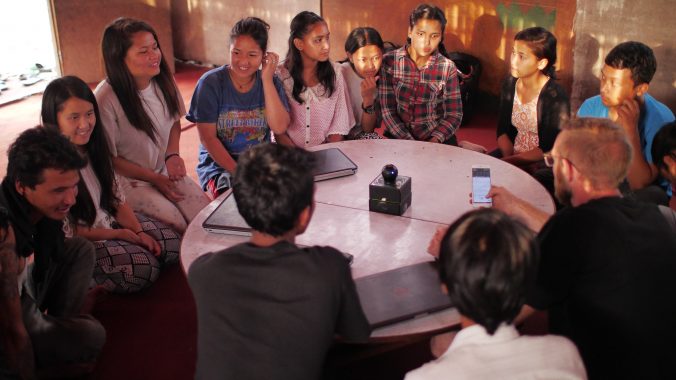Today our class went to the Pacific School of Innovation and Inquiry (PSII) a private school created by Jeff Hopkins. PSII’s s serve as teachers, counsellors and principals helping run the school. The school has a 95 (student) to 7 (educator) ratio which allows the educators to develop a good relationship with their learners. Inquiry is essentially answering an open-ended question that can lead to more questions. It is a personalized learning plan students create on their own to explore a subject in depth. Using inquiry allows the students to learn what they are passionate about. Going to the High school was a super unique experience that I am extremely grateful for as it can change the way I teach my students. Generally speaking the current education system is very structured. Inquiry eliminates the structure and allows for exploration. One of my favourite parts about the high school was the sensory room which was filled with objects directed to calm students. Examples of the sensory toys are fidgets, sensory objects, and weighted blankets.
Inquiry is an amazing concept Trevor Mackenzie along with many others came up with. I was fortunate to have Mr. Mackenzie as a high school teacher where he introduced the idea of inquiry. At first I found the idea very scary as a person who likes structure. I always want to have a more well rounded knowledge base and found it difficult to wrap my head around. At PSII I found it hard to imagine doing a project on ouster space being equivalent of Chemistry 11 although the teacher might ask them to add a section on titration I still don’t see how they would learn everything they would need for university. It was also crazy the students didn’t have blocks or time for lunch they just ate when they wanted to and took breaks when they needed to.
A potential issue with inquiry is that a student may miss key learning points that lead to future understanding in a subject/field. Another possible problem is that elementary school learners may not know what they are passionate about yet or they do know and wont want to learn about other topics. Therefor I see this system potentially fostering ignorance on certain objects. Another potential issue with the program is that if a student doesn’t like a subject an example being math they may not do it or may not be able to do it without specific instruction. The last downside I see is if a student is not motivated to learn they may not be able to work independently without guidelines. One of the biggest challenges with inquiry in the elementary level is you could spend your whole year teaching inquiry to your grade 3 class but then next year their grade 4 teacher will teach without inquiry and students may lose the skill.
I love the anecdotal report card system they use at PSII. Anecdotal report cards describe your progression throughout the year. Students only get a grade at the end of the year. Another positive to this learning style is maximum student engagement as students are passionate about the questions they attempt to answer and use self regulation to do work. I believe this system is super beneficial to teach children critical thinking and creativity skills transferable to future careers. One of my issues going through school is I would always follow the teachers instruction and information without questioning it. It makes me wonder if I grew up with inquiry based learning would be a more independent thinker? I believe if I was teaching inquiry I would use a structured inquiry approach and perhaps tell them to do a project an animal. They can write whatever they want about that animal but give examples (examples are write about the animals habitat or alimentation). Starting with structured inquiry is important as students should be taught using scaffolding. Students will slowly be learning expectations and techniques to complete thier work before throwing them in the deep end of inquiry.

Leave a Reply